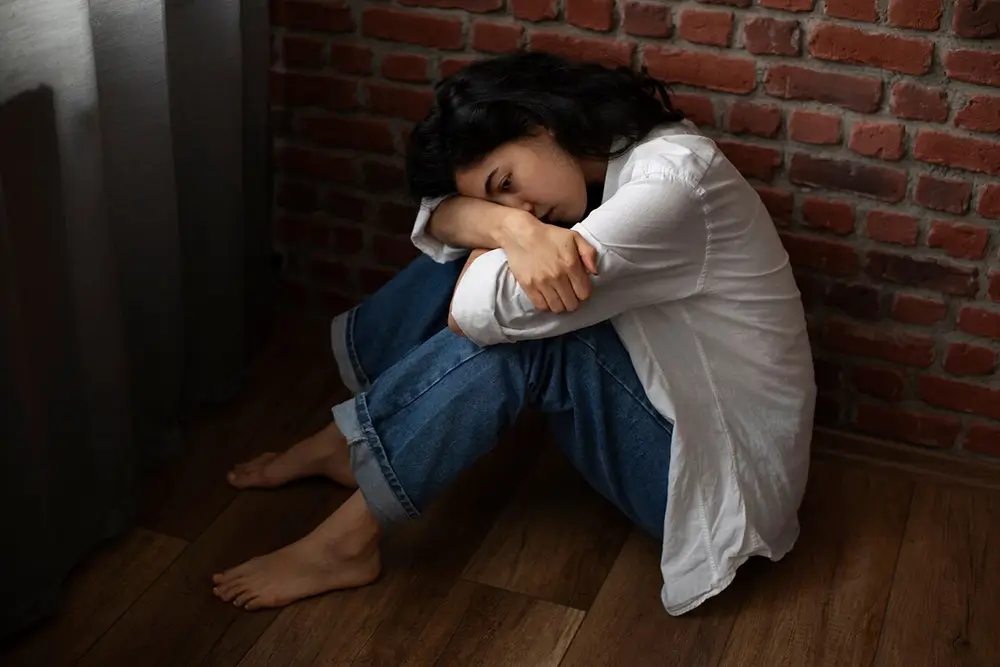New Jersey’s Leading PTSD Treatment Programs
Request a Callback
The Emotional Toll of PTSD
Experiencing something deeply traumatic can have lasting effects. Over time, this can sometimes develop into a condition like Post-Traumatic Stress Disorder (PTSD), which can affect your well-being. Post-Traumatic Stress Disorder (PTSD) is a common mental health condition that affects many people. It can develop after someone has experienced or witnessed a traumatic event and can cause intense feelings of fear, anxiety, and distress, making it difficult to move forward. Studies show that about 6.4% to 6.8% of the general population will experience PTSD at some point in their lives. This condition can make even simple tasks feel like a constant struggle, and the emotional weight can be hard to carry.
Trauma doesn’t disappear overnight, and the feelings you’re experiencing—whether it’s anxiety, sleeplessness, or difficulty connecting with others—are real and valid. There is hope, and there are resources to help. Treatment options like outpatient therapy programs are available, offering support and tools to help you manage symptoms and begin to heal. It won’t be easy, and it might take time, but we are here to help you take the first step toward feeling better. With our expert care, we focus on guiding you toward healing, restoring balance, and regaining control of your life.


Understanding the Post Traumatic Disorder (PTSD)
Post-Traumatic Stress Disorder (PTSD) is a mental health condition that can develop after experiencing or witnessing a traumatic event. The emotional and psychological effects of trauma can be overwhelming, and even if you weren’t directly involved, the shock of what happened can have a lasting impact on your life.
PTSD can affect how you think, feel, and behave. Symptoms may appear shortly after the event, but they can also show up years later. Common symptoms include reliving the traumatic event through flashbacks or nightmares, avoiding reminders of the event, and experiencing intense feelings of fear, guilt, or hopelessness. It can also lead to difficulty sleeping, low self-esteem, and a loss of interest in things that once brought joy.
If you are struggling with these symptoms, it’s important to know you’re not alone. Various treatments call themselves the best treatment for PTSD available that can help you manage the symptoms and begin healing. Let’s unfold them here.
Science of PTSD: Reason Behind the Disorder
PTSD is linked to changes in the brain that affect emotional processing, memory, and fear responses. These brain areas become altered, leading to the symptoms commonly associated with the disorder. Here’s how the brain is impacted:
Amygdala: This part of the brain controls fear. In people with PTSD, it becomes overly active, making them feel constantly scared and on edge.
Hippocampus: This area is responsible for memory. PTSD can cause memories to get mixed up, leading to flashbacks, where someone feels like they’re reliving the traumatic event.
These brain changes make it harder for people with PTSD to feel safe or move on from the trauma without help.

Why You Should Get Treatment for PTSD
PTSD can lead to ongoing emotional distress, affecting relationships, work, and daily activities.
Untreated PTSD may increase the risk of developing other mental health conditions, such as depression or anxiety.
Treatment can help manage and reduce symptoms like flashbacks, nightmares, and emotional numbness.
Proper care and therapy improve coping skills and provide strategies to manage stress and triggers.
Getting treatment can foster a sense of control, safety, and healing, improving overall mental health and well-being.
We Work With Most Major Insurance Providers
- Aetna
- Amerihealth
- Anthem
- Beacon
- Behavioral Health Systems
- BCBS—Most BlueCross & BlueShield Plans
- Carelon Behavioral Health
- CareFirst
- Cigna
- ComPsych
- Coventry
- Empire BlueCross BlueShield
- GHI
- Highmark
- Humana
- Magellan
- MagnaCare
- Meritain Health
- MultPlan
- NYSHIP (New York State Insurance Plan)
- Optum
- Oxford
- PHCS
- Self-Pay
- TRICARE
- UHC
- UMR
- VA Insurance
- 90 Degree Benefits
- Aetna
- Amerihealth
- Anthem
- Beacon
- Behavioral Health Systems
- BCBS—Most BlueCross & BlueShield Plans
- Carelon Behavioral Health
- CareFirst
- Cigna
- ComPsych
- Coventry
- Empire BlueCross BlueShield
- GHI
- Highmark
- Humana
- Magellan
- MagnaCare
- Meritain Health
- MultPlan
- NYSHIP (New York State Insurance Plan)
- Optum
- Oxford
- PHCS
- Self-Pay
- TRICARE
- UHC
- UMR
- VA Insurance
- 90 Degree Benefits
At this time, we do not accept Medicaid or Medicare.
Relevance saved my life. Everyone here is so helpful and genuine. I highly highly recommend!
This program was absolutely life changing. It fully brought me out of a dark tunnel and into a fresh perspective of enlightenment.
Coming from another treatment center from southern Jersey, I was really anxious and afraid, being completely out of my element, it felt like I was a fish out of water. Relevance’s team really made me feel comfortable while I was being treated, and I thank them for that. I felt really supported and cared for during the time I attended program!
Grateful for Relevance and their open door to seek the treatment I needed.
Great place! All the people are friendly and the staff helped me greatly in my recovery.
This place is a wonderful place to better yourself if you’re looking for a place that still feels like reality. You are not isolated from the rest of the world, but working on yourself within it. Most of the employees here really make an effort to help you, and the atmosphere is wonderful! I’m so greatful for this place
Relevance was such a welcoming environment every day. Staff was amazing supportive and caring. Definitely helped me prepare for life after treatment.

When to Seek Treatment for PTSD?
- Recurring flashbacks or nightmares that make you feel like you’re reliving the event.
- Feeling constantly on edge or hyperalert, unable to relax.
- Avoiding places, people, or activities that remind you of the trauma.
- Emotional numbness or feeling disconnected from others.
- Struggling with relationships, work, or daily tasks due to these symptoms.
Outpatient Treatment Program At Relevance Recovery
Outpatient treatment for PTSD offers flexible, effective support for those who need help managing trauma while maintaining their daily life. This approach allows you to receive care without staying overnight at a facility, making it easier to balance treatment with work, school, and other responsibilities.
In outpatient treatment, you’ll work closely with our mental health professionals, who tailor the therapy to meet your unique needs.

How Relevance Recovery Can Help You
PTSD is a challenging condition that can affect many aspects of daily life, making it hard to manage emotions, memories, and triggers. However, with the right PTSD treatment plan, healing is possible. Relevance Recovery offers award-winning outpatient treatment for PTSD, providing flexible support while allowing you to maintain your daily life. Our approach combines therapies like cognitive-behavioral therapy (CBT), yoga, meditation, and biofeedback tailored to your unique needs. Beyond just therapy, Relevance Recovery also offers emotional support to help you feel at home and comfortable throughout your healing process.
With a focus on building long-term coping skills, we guide you through recovery while empowering you to take control of your mental health. Reach out to us now and we are here to support you every step of the way with the best treatment for PTSD.



